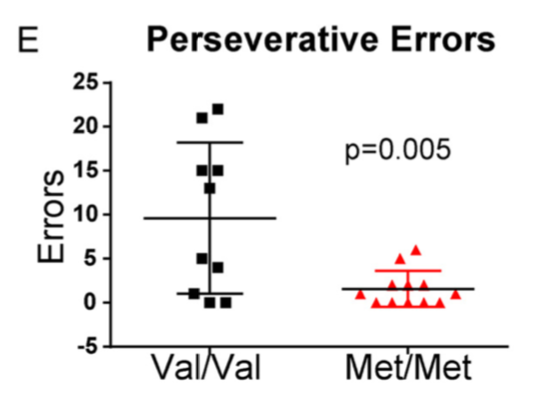A common human polymorphism in the gene that encodes brain derived neurotrophic factor (BDNF), Val66Met, is considered a marker of vulnerability for mental health issues and has been associated with cognitive impairment. An alternate framework has been proposed in which “risk alleles” are reinterpreted as “plasticity alleles” that confer vulnerability in adverse environments and positive effects in neutral or positive environments (Belsky et al., 2009). These frameworks produce divergent predictions for tests of learning and cognitive flexibility. Here, we examined multiple aspects of learning and cognitive flexibility in a relatively new BDNF Val66Met mouse model (BDNF Val68Met, Warnault et al., 2016), including multiple choice discrimination and reversal, go/no-go learning and reversal, and appetitive extinction learning. We found that mice homozygous for the Met allele show more efficient reversal learning in two different paradigms, but learn at rates comparable to Val homozygotes on the multiple choice discrimination task, a go/no-go task, and in appetitive extinction. Our results dissociate reversal performance from go/no-go learning and appetitive extinction and support the plasticity allele framework that suggests BDNF Met carriers are potentially more sensitive to changes in the environment.
Angela Vandenberg, Wan Chen Lin, Lung-Hao Tai, Dorit Ron, Linda Wilbrecht, Mice engineered to mimic a common Val66Met polymorphism in the BDNF gene show greater sensitivity to reversal in environmental contingencies, 34 Developmental Cognitive Neuroscience 34–41 (2018)
